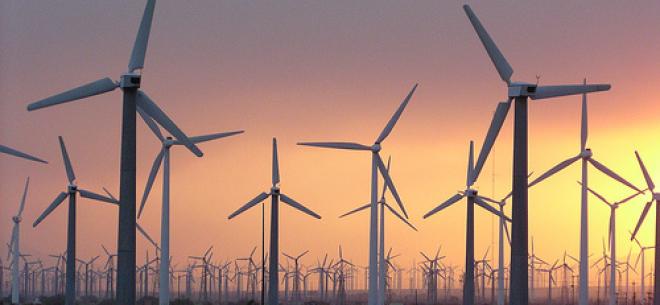RIO DE JANEIRO, BRAZIL – Thanks to the energy policy approved by the government in 2008, Uruguay has been able to position itself in recent years as one of the countries that have made the best turns towards the use of renewable energy sources, both regionally and internationally.
This long-term policy (period 2005-2030) focuses on incorporating domestic energy sources, especially renewable energy, to reduce dependence on oil.
Wind energy and solar, in particular, have gained a great deal of importance. According to the National Energy Balance for 2020 prepared by the Ministry of Industry, Energy, and Mines (MIEM), wind energy accounts for 40% of energy production, while solar power accounts for 4%. In 2005, neither contributed to national production.
Read also: Check out our coverage on Uruguay
Over the past decade, wind energy production has increased significantly from 1% to 40%. The solar source, which has been used more recently, has a smaller share of total generation but has also seen sustained growth in recent years since Decree No. 133/13 issued tenders to companies interested in generating energy through large photovoltaic systems.
The energy generation capacity is so large that the country exports it to its neighboring countries, Brazil and Argentina, with a record value predicted for this year, mainly due to the historic drought in Brazil.
In addition to the notable achievements in clean energy, it is also worth mentioning the country’s very high electrification rate, which at 99.8% is among the best in Latin America.
To close the gap that still exists, the “Uruguay 100% Electrified” plan has been elaborated, aiming to reach all households in the country by extending the electricity grid by 400 km and distributing photovoltaic solar kits to the rural families furthest from the grid.
DOING WELL
Several organizations have highlighted our country as a promoter of clean energy.
REN21’s Renewables Global Status Report, published in June of this year, places Uruguay second in the world in the generation of electricity from variable renewable sources, in contrast to the stagnation of global targets in this area for 2020 highlighted by the G20 countries, according to the organization’s press release.
In the recent Global Electricity Review conducted by EMBER, an organization dedicated to the transition of the world’s electricity supply to clean energy, Uruguay is among the top 15 countries in the world, ranking second in the generation of wind and solar power (44%), surpassed only by Denmark (61%). Chile is the only other Latin American country in this ranking, ranking 13th together with Uruguay (17%).
According to the latest edition of the World Economic Forum’s Fostering Effective Energy Transition 2021 report, published in April 2021, Uruguay was the best-positioned Latin American country in the Energy Transition Index (ETI), ranking 13th out of a total of 115 countries studied.
The VII LATAM Renewables Congress and the 1st WEC Uruguay Chapter Congress, held at LATU in September, set the strategic lines for implementing the country’s second energy transition after the first energy transition was already recognized as successful.
The focus of the second transition would be on decarbonization, taking more significant advantage of the electrification already achieved, especially in transportation. Some challenges in this regard relate to establishing a more extensive charging network throughout the territory and the high cost of electric vehicles.
At the same time, the development of green hydrogen is being promoted, which has multiple applications for industry and mobility. It is produced by electrolysis of water using renewable energy, requiring large amounts of electricity to split the water molecule.
Thus, the surplus energy generated in Uruguay and the wide availability of renewable energy, which could be used to produce hydrogen at a lower cost than in other countries with more expensive electricity generation, represent an opportunity.
A pilot project is currently underway to produce hydrogen on a small scale for the transportation sector, which will provide experience and knowledge on the subject. The feasibility of meeting the upcoming demand for hydrogen in industrialized countries will be examined in the future.
Uruguay continues to pursue new opportunities for the efficient use of renewable energy to drive decarbonization. The challenge is to develop attractive policies that attract investment and design sustainable plans over the long term.
With information from El Observador


